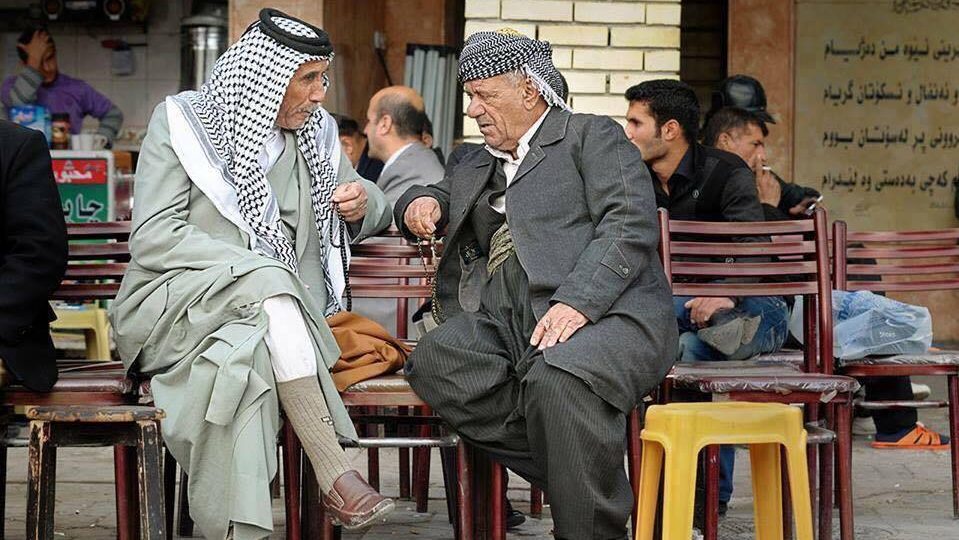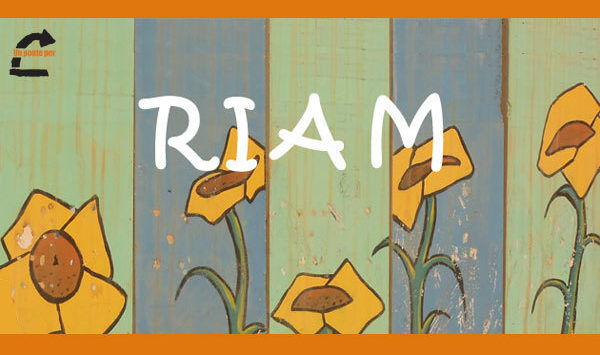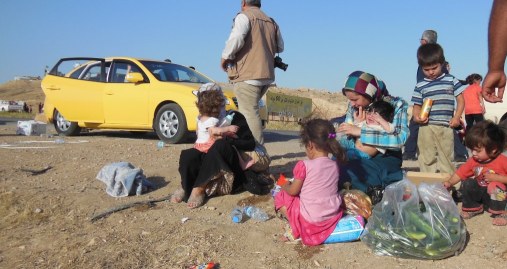No to War, No to Economic Sanctions, the Only Solution is Dialogue
Recognizing the role of civil society to promote peace, nonviolence, and respect for human rights, we call for dialogue to address the problems between the Iraqi central government and the Kurdistan Regional Government, for efforts to de-escalate tensions, and for the cessation of external interventions.
Peace and partnership among Iraqi citizens of different backgrounds, especially Arabs and Kurds, are threatened because of political conflict following the referendum on 25-September-2017 that expressed overwhelming support for an independent Kurdish nation. Members of civil society are deeply concerned about what is happening and they must now be included as partners in efforts to reduce conflict. Failure to initiate dialogue will only allow more belligerent actors to mobilize for war and economic sanctions that would cause great suffering for all Iraqi citizens.
On 5 October, representatives of organizations from Erbil, Sulaymaniyah, and Baghdad, along with representatives of international civil society met to discuss this crisis and agreed upon the statement below. We invite you as organizations, associations, networks, and volunteer groups to join this initiative and add your opinions and observations.
1.) The first step is to stop the escalation of tensions and conflict:
The politicians in Baghdad and Erbil should put at the forefront of their dialogue the points they agree upon, not their points of contention. Most important among these common points, in the view of civil society, should be:
- Rejecting violence, war and militarization as a means of resolving internal conflicts and rejecting collective punishment of the civilians in Kurdistan and all parts of Iraq, including economic sanctions.
- Respecting the Iraqi constitution as the basis for dialogue to resolve this conflict, while working to ensure that the rights of all Iraqi citizens are equally respected and protected.
- Respecting international law and international human rights law in all efforts to resolve the conflict.
- Resolving disputes internally – accepting the contributions of technical experts in conflict resolution from the EU and the United Nations to facilitate dialogue – but not allowing intervention by foreign governments that could lead to broader regional conflict.
- Involving civil society in dialogue and conflict resolution in general, and in rebuilding trust and confidence among Arabs, Kurds, Turkmen, Assyrians and other Iraqi citizens, in particular.
2.) The second step is to address the referendum:
- There should be no focus on punishment or retaliation, especially with regard to civilians, whether they voted in or boycotted the referendum.
- We urge the KRG and the GoI to initiate dialogue, without preconditions, in order to seek solutions to the current conflict.
3.) A key issue will be the disputed areas:
These areas are all devastated. Instead of plunging them into new conflict, the disputed territories should be managed in accordance with the following principles:
- Priority must be placed on peacebuilding, voluntary return or alternative durable solutions for displaced people, and rebuilding affected areas.
- Reject escalation of ethnic tensions, and think of internal solutions to the problems of the disputed areas.
- Citizens in and from the disputed areas should be involved in all decisions about the future of these areas.
- Entrust local police exclusively with the task of maintaining internal security, and remove other armed forces to their bases. Immediately remove heavy weapons from these areas.
- Ensure representation of the local population in ways that promote co-existence, security, return, and reconstruction as top priorities and a precondition for elections.
- Sustainable peace will require transitional justice. We call for adhering to the rule of law to promote justice, reconciliation, truth finding, compensations, and memorialization among the various inhabitants of these areas.
4.) Airports, crossings, and borders:
We call for opening a technical discussion by experts on the best ways to manage all the borders, crossings, ports and airports of Iraq from the south to the north, and those that are located inside the Kurdish region in particular. This discussion should include experts from the relevant ministries, and the representatives of the provincial governments and the provinces concerned, respecting the following principles:
- The first goal is to prevent any conflict or military action in these places.
- Regulate and facilitate the efficient passage of goods and persons, and ensure that imports and exports are managed clearly and transparently.
- Support ports and airports by providing the necessary tools and training (by foreign experts if needed) on the proper administration of these facilities, in order to promote transparent management and to combat corruption.
5.) International civil society, the United Nations, the European Union, and the neighboring countries:
- Should support this initiative and work to motivate all governments to join hands in order to achieve the goal of building sustainable human peace and international solidarity.
- Foreign citizens, whether residing in Kurdistan or in the rest of Iraq, should be excluded from any form of conflict and not be used as a means to pressure any side in the conflict.
- Workers in international organizations, and international solidarity and peace activists should be able to obtain visas at airports in recognition of the important role they play in helping Iraq recover from the crisis of conflict and displacement it has experienced. This should include all who wish to work in the Kurdistan region and Iraq in general.
- The international community needs to stand by Iraqi Human Rights Defenders [HRDs] who may be putting themselves at risk in order to promote a just peace. Protection mechanisms need to be put in place to prevent and deal with threats and attacks towards HRDs, and not merely to help them relocate after their lives are at risk. The OHCHR or the EU should indicate a focal point or an office to which threats and attacks on HRDs can be reported, both in the Kurdistan region and in the rest of Iraq.
If you represent a civil society group, organization, or trade union, and you agree with the call, sign the statement || click here
(Available in Arabic, Kurdish and English)




